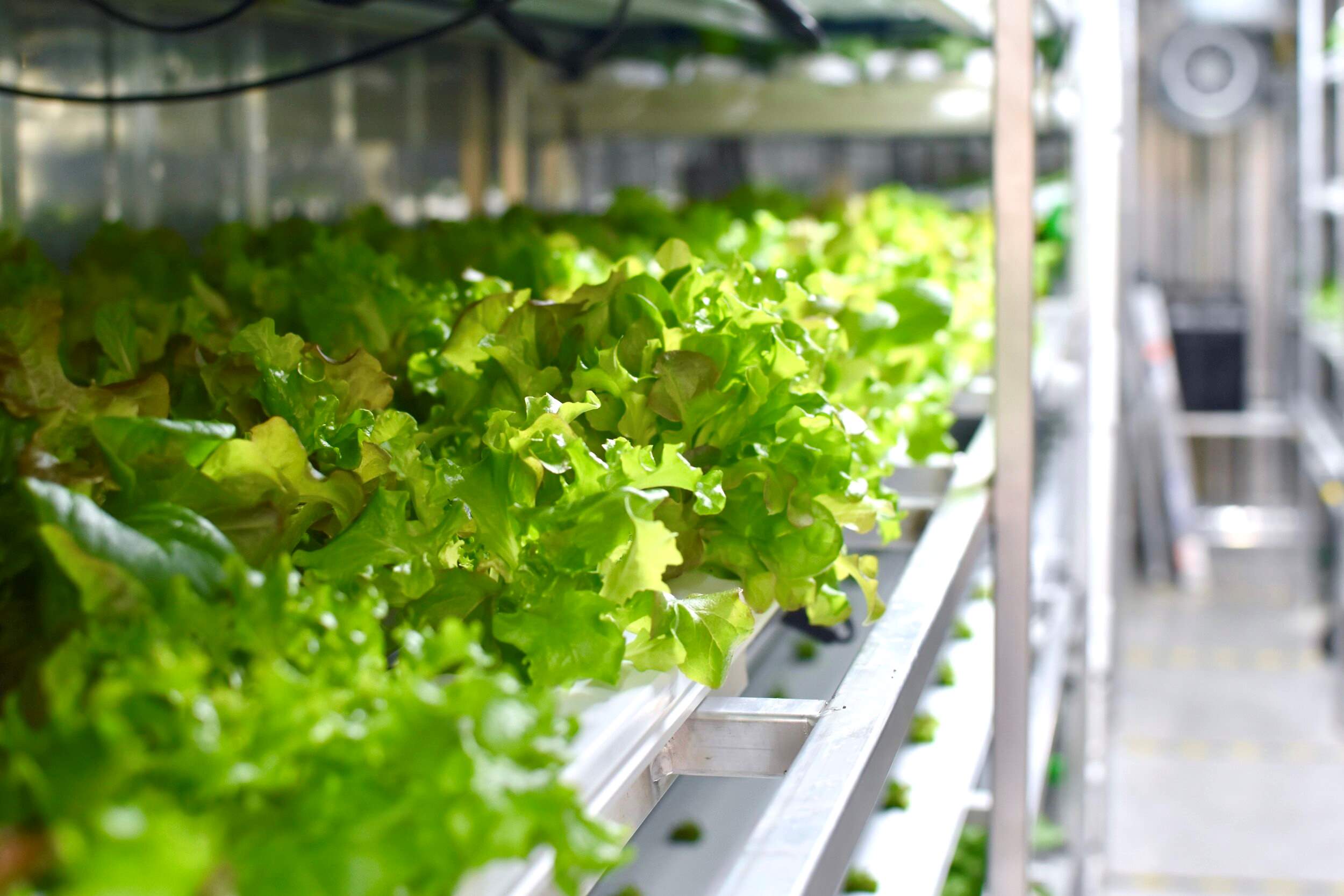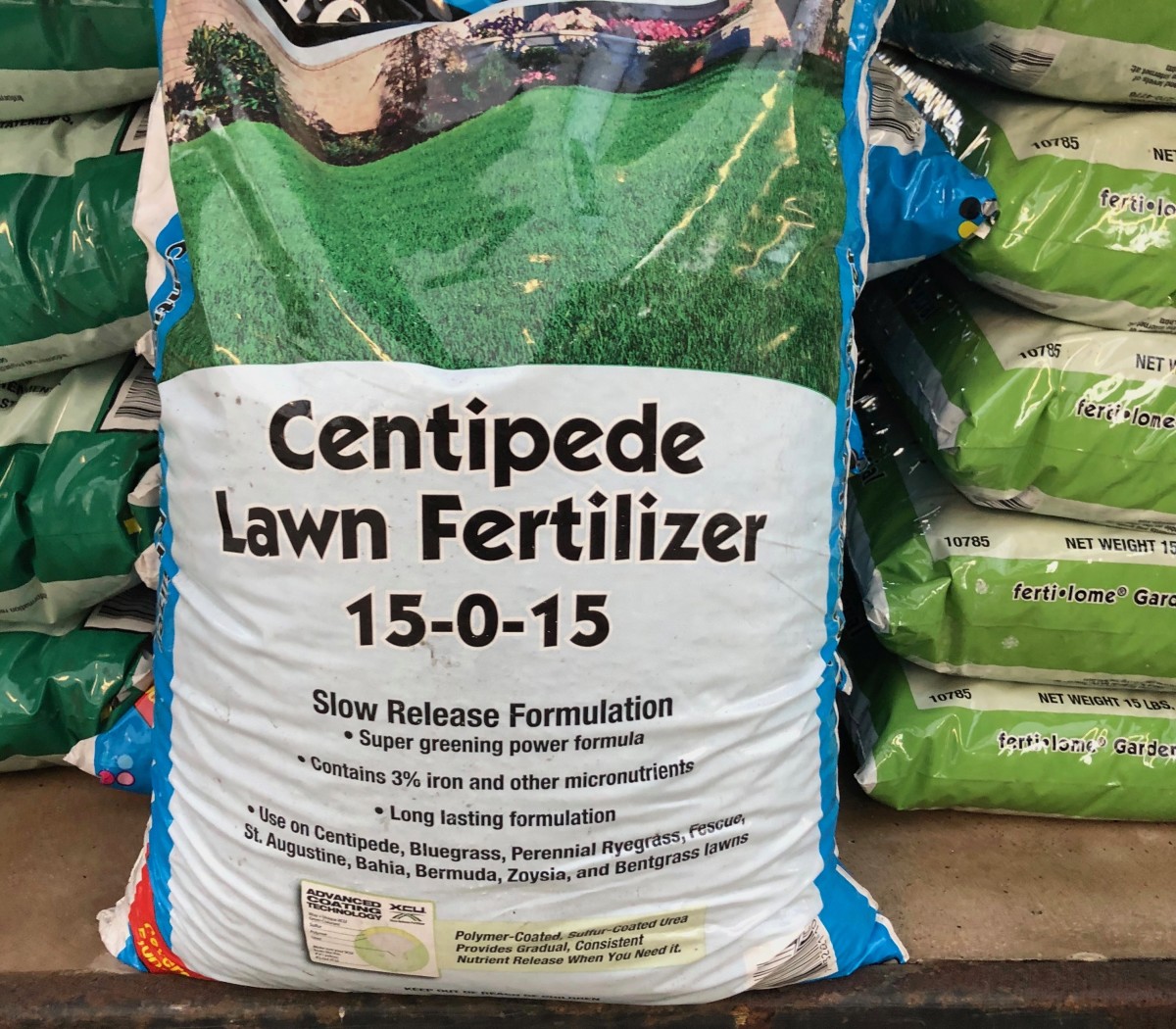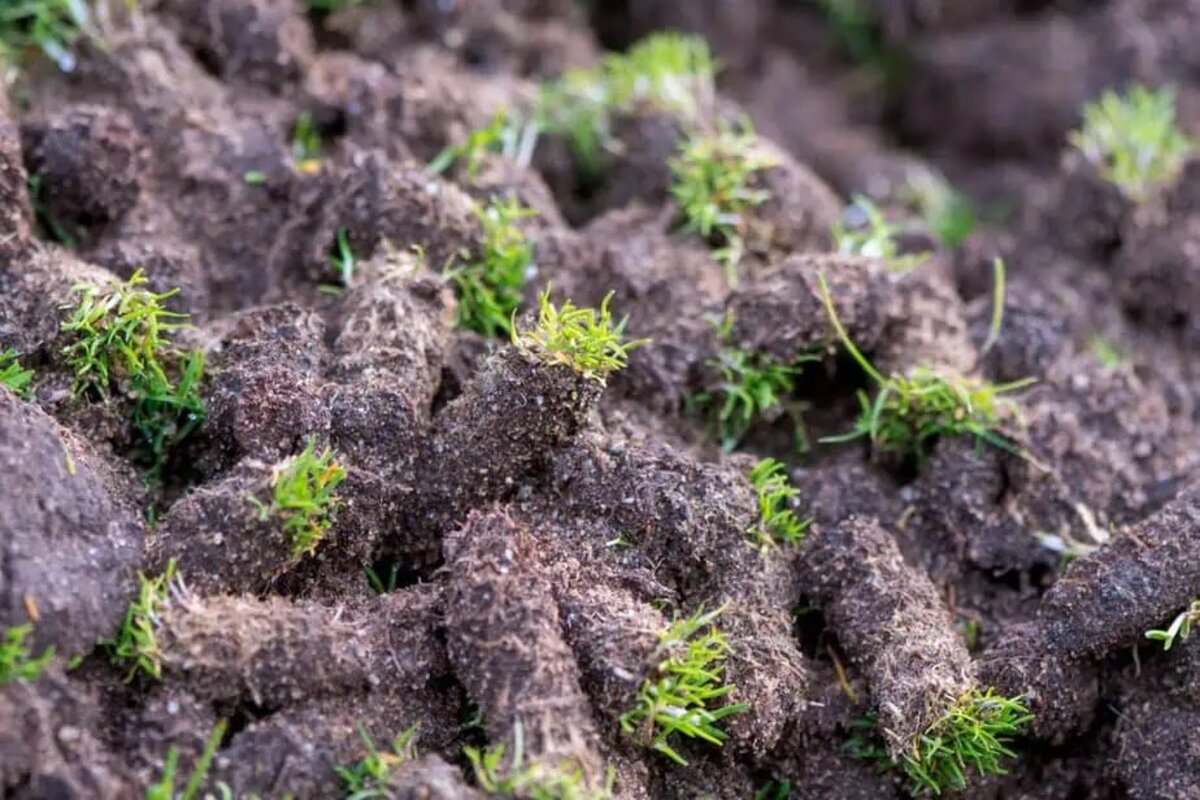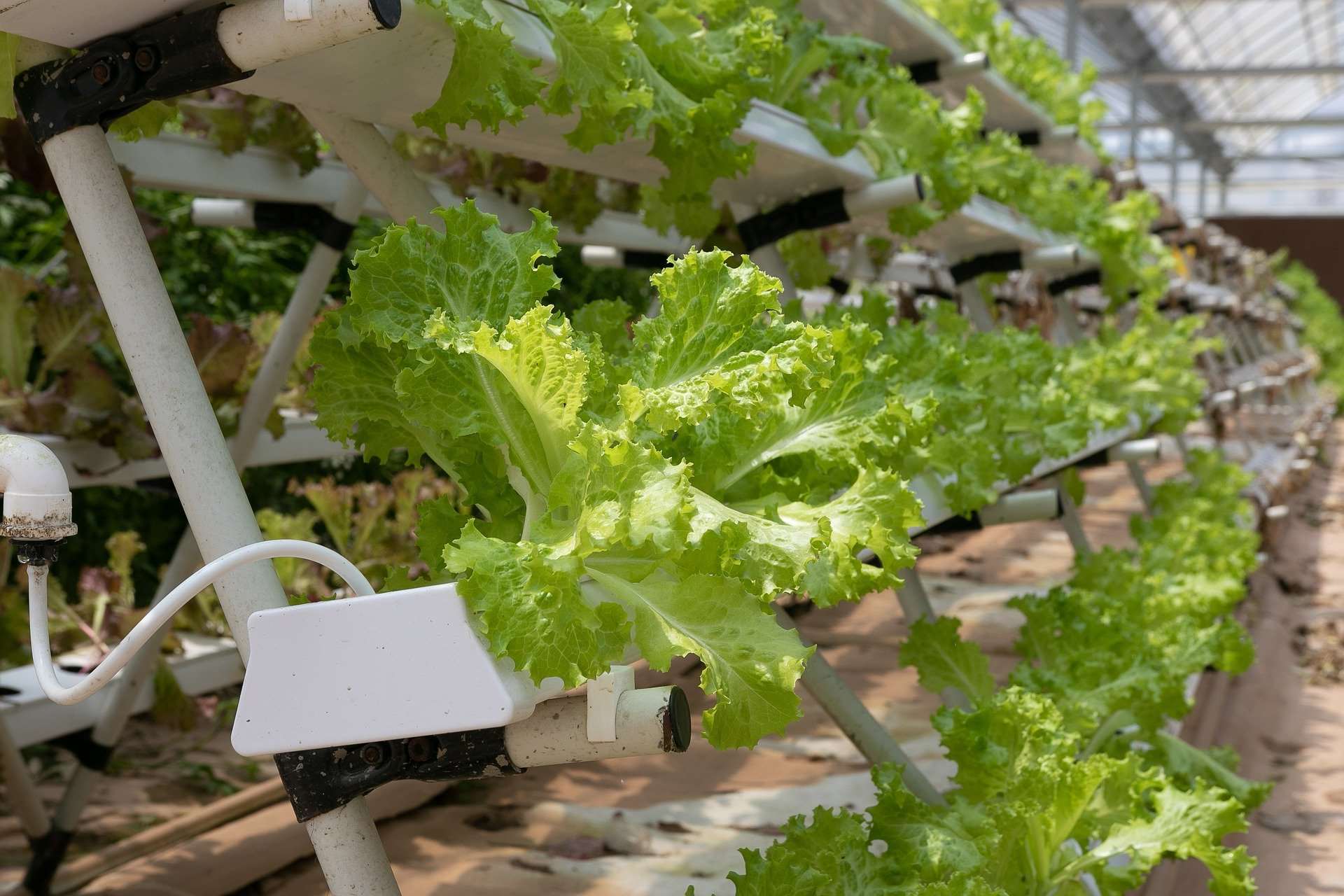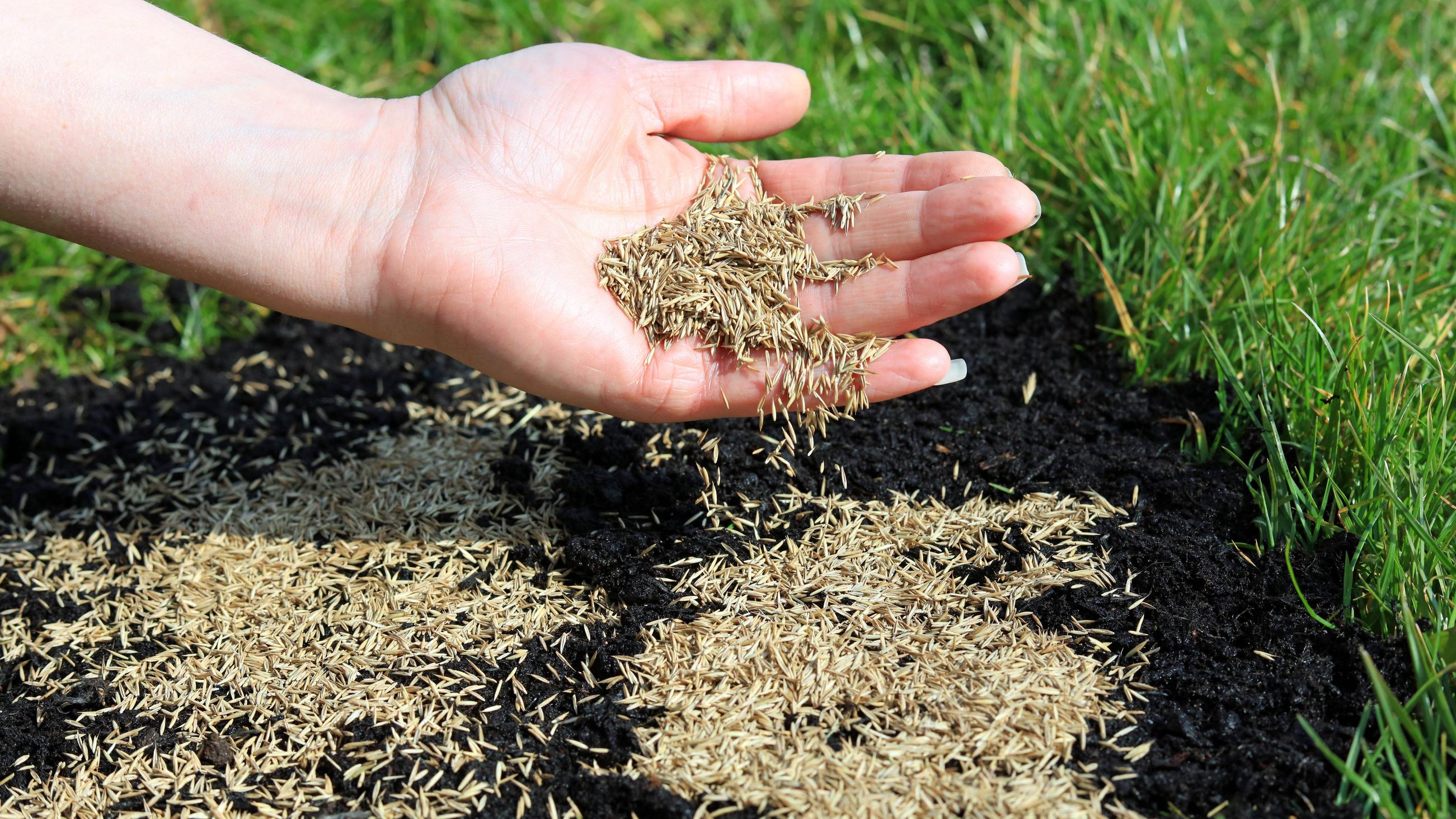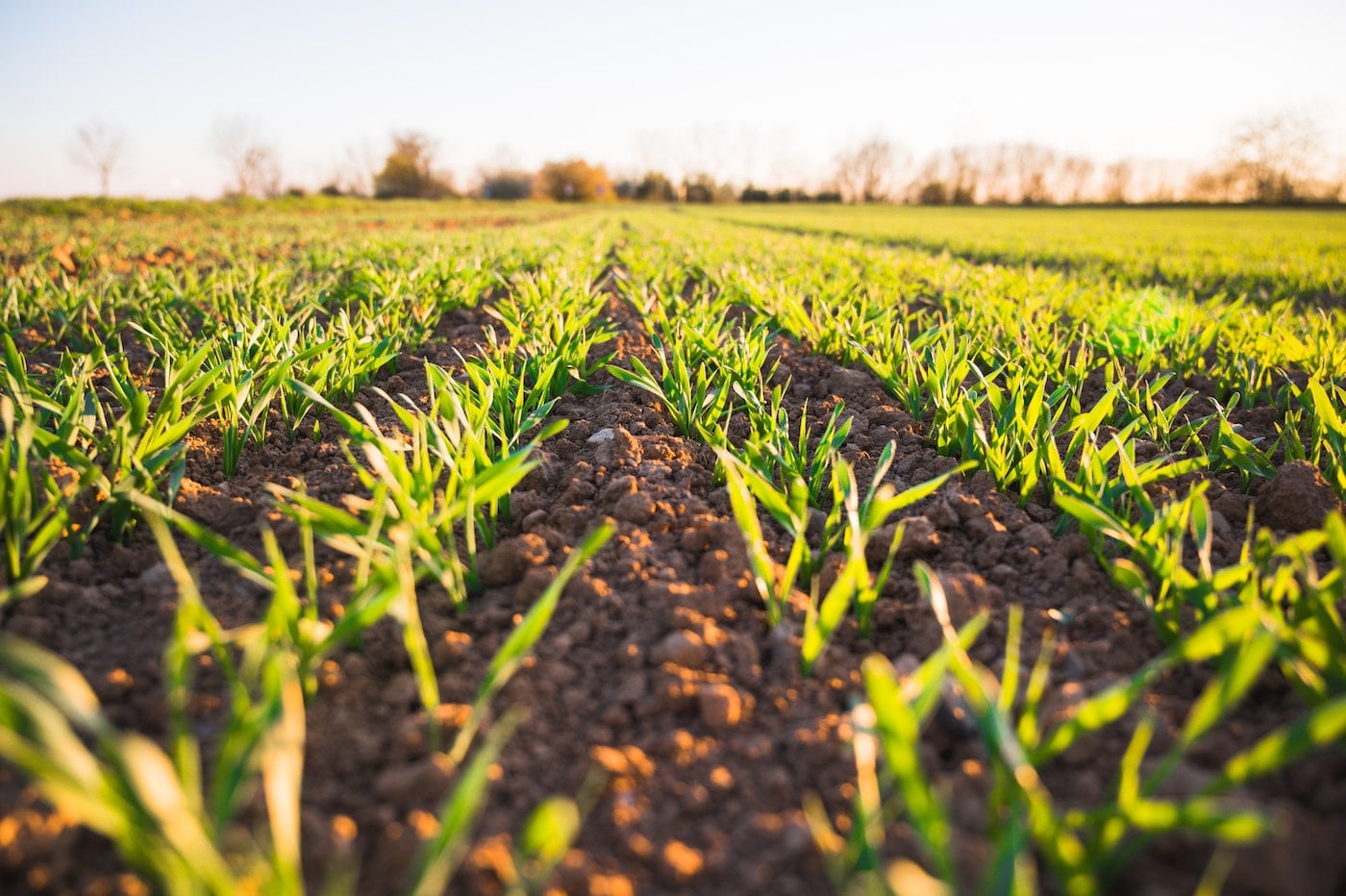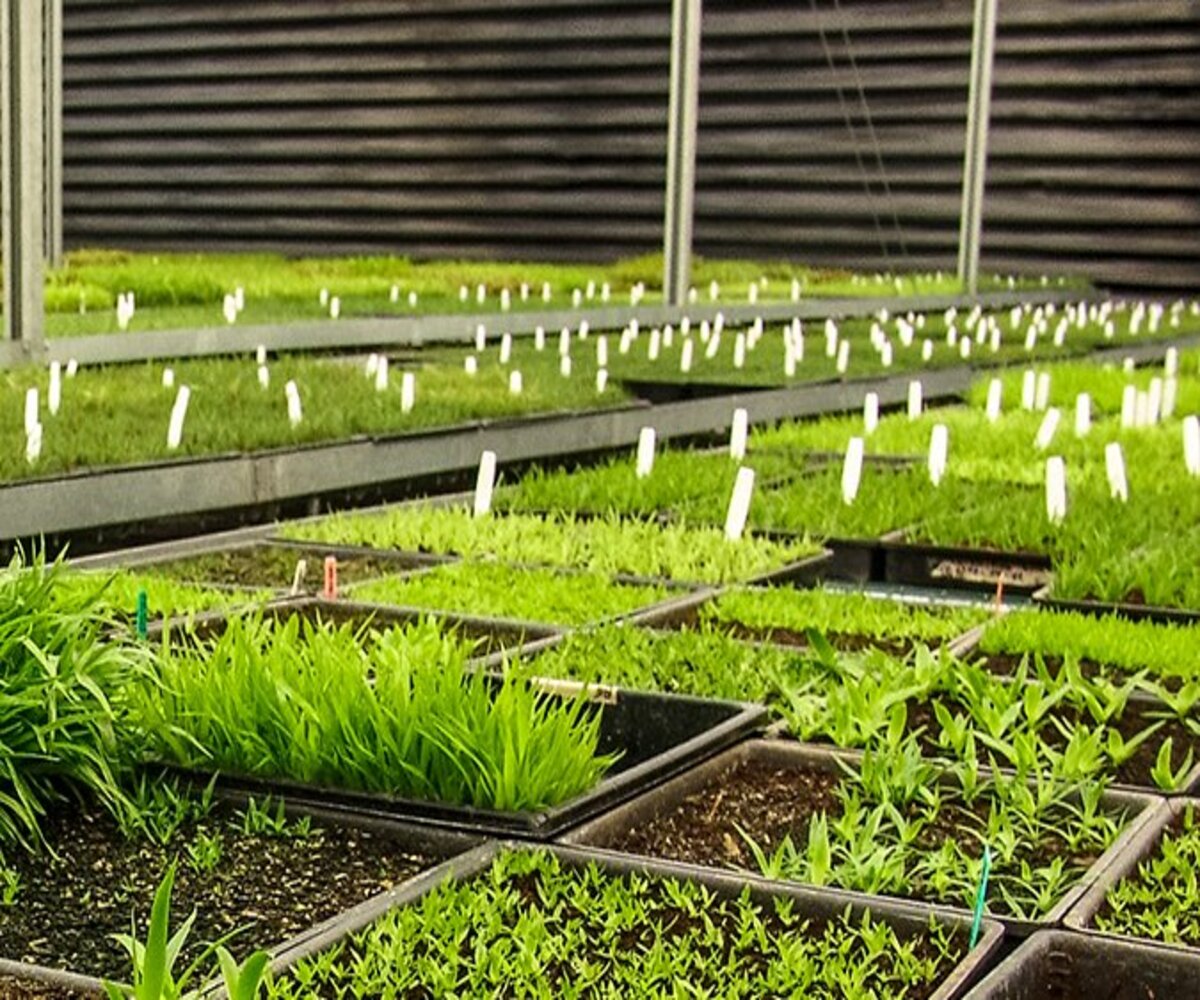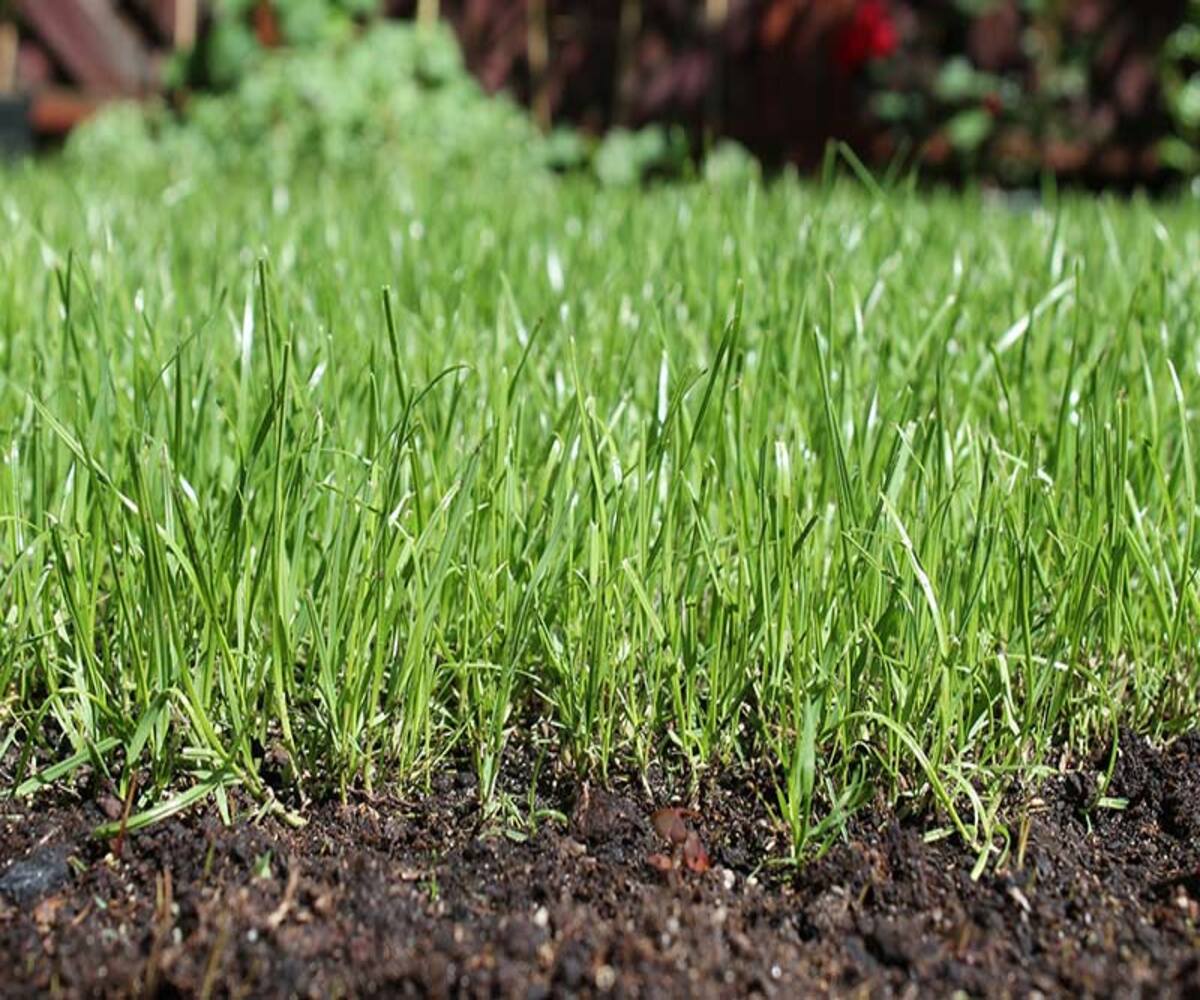Home>Gardening Tips and Tricks>Eco-Friendly Gardening>What Fertilizer To Use For Hydroponics
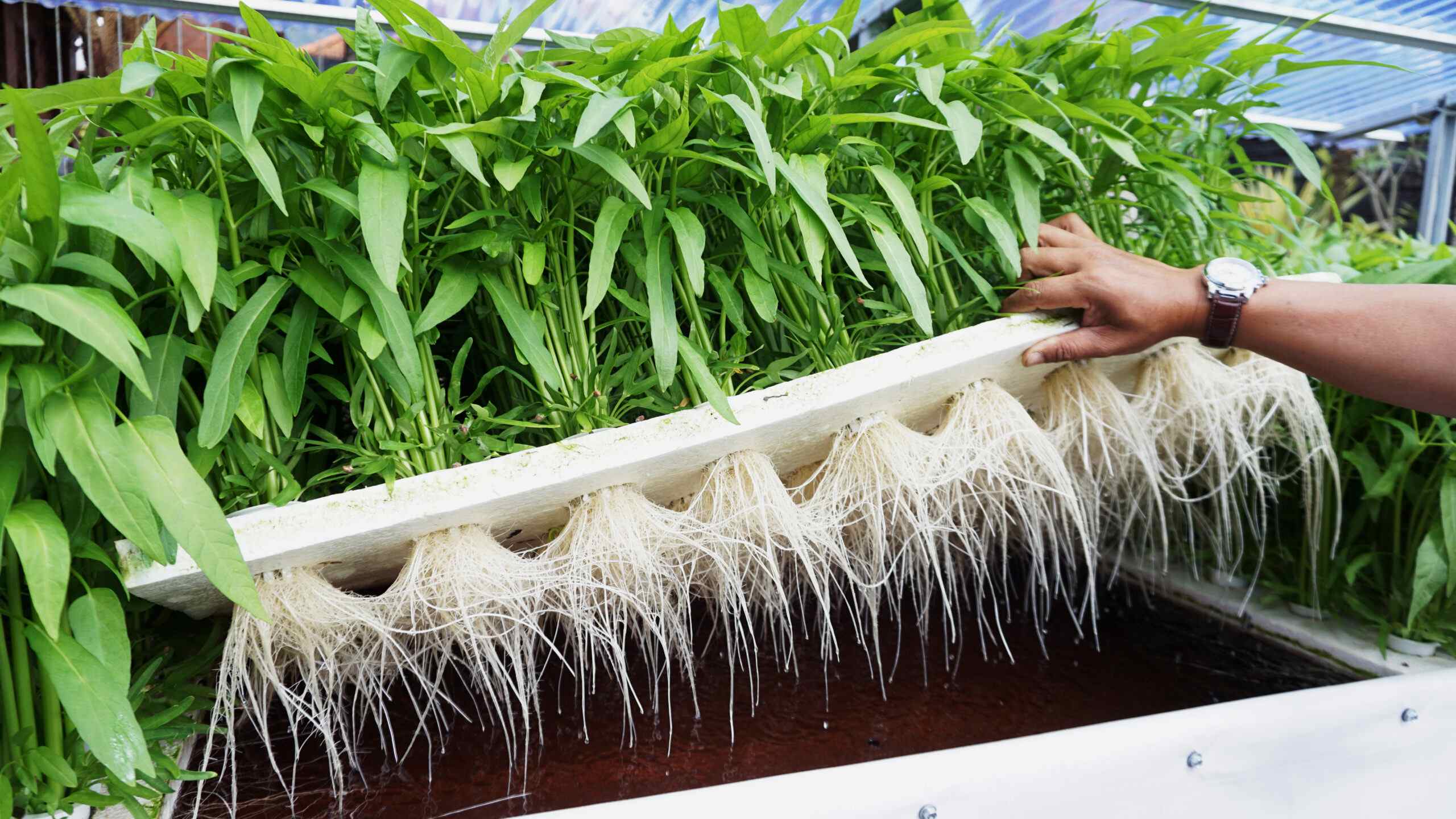

Eco-Friendly Gardening
What Fertilizer To Use For Hydroponics
Modified: February 10, 2024
Discover the best eco-friendly gardening practices for hydroponics with our guide on what fertilizer to use. Maximize your yields while minimizing your environmental impact.
(Many of the links in this article redirect to a specific reviewed product. Your purchase of these products through affiliate links helps to generate commission for Chicagolandgardening.com, at no extra cost. Learn more)
Table of Contents
- Introduction
- Understanding Hydroponics
- Importance of Using Fertilizer in Hydroponics
- Factors to Consider When Choosing Hydroponic Fertilizer
- Nutrient Solutions for Hydroponics
- Organic Hydroponic Fertilizers
- Synthetic Hydroponic Fertilizers
- Slow-Release Fertilizers for Hydroponics
- Determining the Right Fertilizer for Your Hydroponic System
- Tips for Successful Fertilizer Application in Hydroponics
- Conclusion
Introduction
Hydroponics is a revolutionary gardening method that allows plants to be grown without soil, using nutrient-rich water as a replacement. This sustainable and eco-friendly technique has gained significant popularity in recent years, thanks to its numerous benefits. Not only does hydroponics maximize space utilization and water efficiency, but it also reduces the need for harmful pesticides and herbicides.
One essential aspect of hydroponics that ensures the health and growth of plants is the use of fertilizers. Fertilizers provide plants with the necessary nutrients they need to thrive, compensating for the absence of nutrients naturally found in soil. By understanding the importance of using the right fertilizers and selecting the appropriate nutrient solutions, gardeners can achieve optimal results in their hydroponic systems.
Choosing the right fertilizer for hydroponics can be daunting, with a wide range of options available in the market. There are organic and synthetic fertilizers, as well as slow-release fertilizers tailored specifically for hydroponic cultivation. Each type has its own benefits and considerations, depending on the specific needs of the plants being grown.
In this comprehensive guide, we will explore the various factors to consider when selecting a hydroponic fertilizer, as well as the different types of fertilizers available. Whether you are a beginner or an experienced hydroponics gardener, this article will provide you with valuable insights to help you make informed decisions about fertilizers in your hydroponic system.
Understanding Hydroponics
Hydroponics is a soil-less gardening technique that allows plants to grow and thrive by directly exposing their roots to a nutrient-rich water solution. Instead of relying on traditional soil, hydroponics uses alternative growing media such as perlite, vermiculite, coconut coir, or even water alone. This method provides precise control over the plant’s nutrient intake, water availability, and environmental conditions.
One of the primary advantages of hydroponics is its ability to maximize the efficient use of resources. Unlike traditional gardening, hydroponics uses significantly less water, up to 90% less, as the roots are directly submerged in nutrient-rich water, allowing for optimal water absorption. This makes hydroponics an ideal choice for areas with limited water availability or those looking to conserve water.
In addition to water efficiency, hydroponics allows for increased control over essential environmental factors such as temperature, humidity, and lighting. By creating an ideal growing environment, plants can experience accelerated growth rates and can be cultivated year-round. This makes hydroponics a viable option for urban areas, where limited space and environmental factors may hinder traditional gardening methods.
Another advantage of hydroponics is the reduced reliance on pesticides and herbicides. With plants growing in a controlled environment, the risk of pest infestations and weed growth is significantly minimized. This not only promotes healthier plant growth but also ensures that the produce is free from harmful chemicals, making it an eco-friendly and sustainable gardening choice.
Hydroponics also offers the flexibility to grow a wide range of plants. From leafy greens and herbs to fruits and even flowers, almost any plant species can be successfully grown using hydroponics. This versatility allows gardeners to experiment and diversify their crops, creating a more sustainable and self-sufficient food production system.
By understanding the principles of hydroponics and harnessing its benefits, gardeners can enjoy a productive, eco-friendly, and year-round gardening experience. The next section will delve into the importance of using fertilizers in hydroponics and how they contribute to the success of the system.
Importance of Using Fertilizer in Hydroponics
When it comes to hydroponics, using fertilizers is vital for the health and growth of plants. Unlike traditional gardening, where plants can extract nutrients from the soil, hydroponic systems rely solely on nutrient solutions to provide essential elements. Fertilizers play a critical role in ensuring that plants receive the necessary nutrients to thrive in this soil-less environment.
The main purpose of using fertilizer in hydroponics is to provide the required macronutrients (nitrogen, phosphorus, and potassium) and micronutrients (iron, zinc, manganese, etc.) that plants need for growth. These nutrients are essential for various physiological functions, such as photosynthesis, respiration, and the production of carbohydrates and proteins.
One of the key advantages of hydroponics is the ability to precisely control the nutrient concentrations in the water solution. This allows for optimal nutrient uptake by the plants, ensuring they receive the right balance of nutrients for robust growth and development.
Furthermore, hydroponic systems are typically designed to be highly efficient in water usage. While this helps conserve water, it also means that nutrients can be quickly depleted from the system. By regularly replenishing the nutrient solution with appropriate fertilizers, growers can maintain a consistent nutrient profile for the plants and prevent deficiencies or imbalances.
Using fertilizers in hydroponics also allows for customization based on the specific needs of the plants being grown. Different plant species and growth stages have varying nutrient requirements. Through the use of specialized fertilizers or nutrient blends, gardeners can tailor the nutrient solution to meet these specific needs, promoting healthy growth and increased yields.
Another advantage of using fertilizers in hydroponics is the quick and efficient absorption of nutrients by the plant roots. Since the nutrients are present in the water solution, they are readily available for uptake, allowing plants to utilize them more effectively compared to traditional soil-based gardening, where nutrients may need to be broken down and released by soil microorganisms.
In summary, using fertilizers in hydroponics is crucial for the health, growth, and productivity of plants. Fertilizers provide the essential nutrients needed for optimal growth and development, compensate for the absence of nutrients in the soil-less system, and allow for customization based on plant species and growth stages. In the next section, we will explore the factors to consider when choosing a fertilizer for hydroponic cultivation.
Factors to Consider When Choosing Hydroponic Fertilizer
Choosing the right fertilizer for your hydroponic system is crucial for ensuring the success of your plants. With numerous options available in the market, it’s important to consider several factors to make an informed decision. Here are some key factors to consider when choosing hydroponic fertilizer:
- Nutrient Requirements: Different plants have varying nutrient requirements. It’s essential to understand the specific nutrient needs of the plants you intend to grow in your hydroponic system. Some plants may require higher levels of certain nutrients, while others may have lower requirements. Consider the macronutrient ratios (N-P-K) and the micronutrient profile of the fertilizer to ensure it aligns with the needs of your plants.
Water Quality: The quality of your water can impact the effectiveness of your hydroponic fertilizer. Test your water to determine its pH level and mineral content. Some fertilizers are specifically formulated for use with different water types. For example, if you have hard water, which has high mineral content, you may need a fertilizer that adjusts for this or a pH stabilizer.- Fertilizer Formulation: Hydroponic fertilizers come in different forms, such as liquid, powder, or granular. Consider the ease of use and compatibility with your hydroponic system. Liquid fertilizers are popular for their easy mixing and immediate availability to the plants, while powder or granular fertilizers may require some preparation before use. Choose a formulation that suits your preferences and the specific requirements of your system.
- Source and Quality: Consider the source and quality of the fertilizer. Look for reputable brands or manufacturers that have established a track record in producing high-quality hydroponic fertilizers. Use nutrient solutions that are free from impurities or contaminants to ensure the health and safety of your plants.
- Organic vs. Synthetic: Decide whether you prefer to use organic or synthetic fertilizers. Organic fertilizers are derived from natural sources and can enhance soil fertility and microbial activity. Synthetic fertilizers, on the other hand, are chemically formulated and provide precise control over nutrient concentrations. Consider your gardening philosophy, nutritional goals, and sustainability priorities when making this decision.
- Cost and Availability: Evaluate the cost and availability of the fertilizer. Some specialized hydroponic fertilizers can be more expensive compared to traditional fertilizers. Consider your budget and the long-term sustainability of acquiring the fertilizer. Additionally, ensure that the fertilizer is readily available for purchase, either locally or through online sources.
By considering these factors, you can choose a hydroponic fertilizer that meets the specific needs of your plants and aligns with your gardening goals. The next section will explore the different types of nutrient solutions available for hydroponic cultivation.
Nutrient Solutions for Hydroponics
One of the key elements in hydroponic gardening is providing plants with the necessary nutrients they need to grow and thrive. Nutrient solutions play a vital role in supplying these essential elements for optimal plant development in hydroponic systems. Here are some important aspects to consider when it comes to nutrient solutions for hydroponics:
- Mixing Nutrient Solutions: Nutrient solutions are typically created by mixing various fertilizers in water to achieve the desired nutrient concentrations. These solutions should be properly balanced to meet the specific nutrient requirements of the plants being cultivated. It is important to follow the recommended mixing ratios provided by the fertilizer manufacturer or consult nutrient solution calculators to ensure accurate measurements.
- Essential Nutrients: Nutrient solutions for hydroponics should provide a balanced supply of essential nutrients required by plants. The primary macronutrients include nitrogen (N), phosphorus (P), and potassium (K), often referred to as N-P-K. Additionally, secondary nutrients like calcium (Ca), magnesium (Mg), and sulfur (S) are also important. Micronutrients, such as iron (Fe), manganese (Mn), zinc (Zn), copper (Cu), boron (B), and molybdenum (Mo), are needed in smaller quantities but are equally essential for plant growth.
- Nutrient Uptake and pH: The availability of nutrients to plants depends on the pH level of the nutrient solution. Each nutrient has a specific pH range at which it is optimally absorbed by plant roots. Monitoring and adjusting the pH of the nutrient solution is crucial to ensure efficient nutrient uptake. Most plants prefer a slightly acidic pH range between 5.5 and 6.5.
- EC and PPM: Electrical conductivity (EC) and parts per million (PPM) are measurements used to determine the concentration of dissolved solids in a nutrient solution, indicating its strength. EC and PPM meters are commonly used to measure the nutrient solution’s conductivity, allowing growers to monitor and adjust the nutrient concentration as needed.
- Monitoring and Adjusting: Regular monitoring of the nutrient solution is essential to ensure that plants are receiving the proper nutrients. Periodically test the pH level and EC or PPM of the solution and make adjustments as necessary. Nutrient imbalances or deficiencies can negatively impact plant growth, so it’s important to maintain proper nutrient levels throughout the growth cycle.
- Hydroponic Systems and Nutrient Delivery: The type of hydroponic system used can influence how nutrient solutions are delivered to plants. Different systems, such as NFT (Nutrient Film Technique), DWC (Deep Water Culture), or drip systems, require specific methods for delivering the nutrient solution to the plant roots. Understanding the requirements of your particular hydroponic system will help determine the most effective way to deliver nutrients to the plants.
By carefully formulating and monitoring nutrient solutions, hydroponic gardeners can provide plants with the optimal nutrient balance required for vigorous growth and high-yield production. In the next sections, we will explore organic and synthetic fertilizer options specifically designed for hydroponic gardening.
Organic Hydroponic Fertilizers
Organic hydroponic fertilizers are derived from natural sources and provide a sustainable and eco-friendly option for nutrient supplementation in hydroponic systems. These fertilizers not only supply essential nutrients to plants but also improve soil fertility and promote a healthier microbial ecosystem. Here are some key points to consider when using organic hydroponic fertilizers:
- Natural Nutrient Sources: Organic hydroponic fertilizers are sourced from natural materials such as compost, worm castings, fish emulsion, kelp, and other organic matter. These materials are rich in essential nutrients and provide a balanced blend for plant growth.
- Slow-Release Nutrients: Organic fertilizers generally release nutrients slowly, ensuring a steady supply over time. This slow-release characteristic helps prevent nutrient spikes or imbalances and provides a more consistent nutrient uptake for the plants.
- Soil Fertility and Microbial Activity: Organic fertilizers contribute to soil fertility by enriching the soil with organic matter and nutrients. In hydroponics, organic fertilizers help create a favorable microbial environment in the growing medium, promoting the growth of beneficial microorganisms that aid in nutrient cycling and plant health.
- Sustainability and Environmental Impact: Using organic fertilizers aligns with sustainable and environmentally friendly gardening practices. These fertilizers are often produced using renewable resources and have minimal negative impacts on soil, water, and surrounding ecosystems.
- Nutrient Retention: Organic fertilizers can also aid in water retention within the growing medium, reducing the frequency of watering and potentially conserving water in the hydroponic system.
- Nutrient Imbalances: While organic fertilizers provide a range of nutrients, they may not always provide precise control over the nutrient ratios. This can lead to imbalances in certain nutrients that require additional monitoring and adjustment to ensure optimal plant nutrition.
When choosing organic hydroponic fertilizers, make sure to select products specifically formulated for hydroponics. These fertilizers are designed to be water-soluble and readily available to plant roots in a soil-less environment. Organic hydroponic fertilizers offer a natural and sustainable approach to nutrient supplementation while promoting soil health and microorganism activity in hydroponic systems.
Synthetic Hydroponic Fertilizers
Synthetic hydroponic fertilizers are chemically formulated nutrient solutions designed specifically for hydroponic gardening. These fertilizers provide precise control over nutrient concentrations, allowing growers to tailor the nutrient solution to meet the specific needs of their plants. Here are some key points to consider when using synthetic hydroponic fertilizers:
- Precision Nutrient Formulation: Synthetic hydroponic fertilizers are formulated to provide a precise balance of essential nutrients. This ensures that plants receive the proper ratio of macronutrients and micronutrients required for vigorous growth and high yields.
- Immediate Availability: Synthetic fertilizers are highly soluble in water, allowing for immediate availability of nutrients to plant roots. This rapid availability promotes fast absorption and utilization of nutrients by the plants, leading to more efficient growth.
- Customization and Control: Synthetic fertilizers offer the advantage of fine-tuning nutrient concentrations based on the specific needs of different plant species or growth stages. This level of control allows for better management of nutrient imbalances and deficiencies, ensuring optimal plant nutrition.
- Consistency: Synthetic fertilizers are formulated with precise nutrient ratios, ensuring consistency in nutrient supply. This consistency is important for maintaining plant health, preventing nutrient deficiencies or toxicities, and promoting even growth throughout the hydroponic system.
- Rapid Growth and Higher Yields: The precise nutrient availability provided by synthetic fertilizers can contribute to faster plant growth and increased yield potentials in hydroponic systems. The controlled nutrient supply can optimize plant development, leading to improved overall productivity.
- Monitoring and Adjustment: Synthetic fertilizers may require regular monitoring of the nutrient solution’s electrical conductivity (EC) or parts per million (PPM). This allows growers to adjust the nutrient concentration as needed, ensuring ongoing optimal nutrient levels for the plants.
When using synthetic hydroponic fertilizers, it’s important to carefully follow the instructions provided by the manufacturer. Over- or under-application of synthetic fertilizers can result in nutrient imbalances or toxicity issues, negatively impacting plant health and growth. It’s also important to periodically flush the hydroponic system to prevent the buildup of excess salts from synthetic fertilizers.
Synthetic hydroponic fertilizers provide an efficient and precise approach to nutrient supplementation in hydroponic systems. Their customizable nutrient formulations and immediate availability make them ideal for tailoring nutrient solutions to meet the specific demands of different plant species and growth stages.
Slow-Release Fertilizers for Hydroponics
Slow-release fertilizers are a popular option for hydroponic gardening as they provide a steady and controlled release of nutrients over an extended period of time. These fertilizers are designed to gradually break down and release nutrients, ensuring a consistent supply to the plants. Here are some key points to consider when using slow-release fertilizers in hydroponics:
- Extended Nutrient Release: Slow-release fertilizers are formulated with nutrient-rich granules or pellets that gradually break down and release nutrients into the hydroponic system. This gradual release ensures a continuous supply of nutrients, reducing the need for frequent fertilization.
- Reduced Maintenance: Slow-release fertilizers require less frequent application compared to traditional fertilizers. This reduces the maintenance workload for hydroponic gardeners, allowing for greater convenience and time savings.
- Lower Risk of Nutrient Imbalances: Since slow-release fertilizers release nutrients at a controlled rate, there is a reduced risk of nutrient spikes or imbalances. This helps maintain a more stable nutrient profile in the hydroponic system, promoting healthier plant growth and minimizing the chances of nutrient deficiencies or toxicities.
- Improved Nutrient Efficiency: Slow-release fertilizers are designed to optimize nutrient uptake by the plants, reducing nutrient wastage and runoff. This improved efficiency maximizes the utilization of nutrients, leading to better overall plant performance and potentially reducing fertilizer costs.
- Longevity: Slow-release fertilizers have a longer lifespan compared to other fertilizers, providing a sustained nutrient supply for a longer duration. This can be advantageous for crops with longer growing cycles or for gardeners who prefer a more hands-off approach.
- Compatibility with Hydroponic Systems: Slow-release fertilizers can be used in various hydroponic systems, including media-based and nutrient film technique (NFT) systems. However, growers must ensure that the slow-release fertilizers they choose are suitable for hydroponic use, as some slow-release products are designed for soil-based applications.
When using slow-release fertilizers, it’s important to consider the specific nutrient requirements of the plants being grown. Slow-release fertilizers may not provide an immediate nutrient boost, so it’s crucial to understand the growth stage and nutrient demands of the plants to ensure they receive adequate nutrition throughout their lifecycle.
Slow-release fertilizers offer a convenient and efficient way to provide a steady supply of nutrients to plants in hydroponic systems. Their controlled release mechanism, reduced maintenance requirements, and improved nutrient efficiency make them a popular choice for many hydroponic gardeners.
Determining the Right Fertilizer for Your Hydroponic System
Choosing the right fertilizer for your hydroponic system is essential to ensure optimal plant growth and yield. With the variety of fertilizers available, it’s important to consider several factors to determine the best fit for your specific needs. Here are some key points to consider when selecting a fertilizer for your hydroponic system:
- Plant Type: Different plants have varying nutrient requirements. Consider the specific nutrient needs of the plants you plan to grow in your hydroponic system. Some plants may require higher levels of certain nutrients, while others may have lower requirements. Select a fertilizer that provides the appropriate mix and concentrations of nutrients for the specific plants you are cultivating.
- Growth Stage: Plants have different nutrient requirements at each growth stage. During the vegetative stage, they require higher levels of nitrogen for foliage growth. In contrast, during the flowering or fruiting stage, they need higher levels of phosphorus and potassium for flower and fruit development. Consider a fertilizer that provides the right balance of nutrients for the growth stage of your plants.
- Fertilizer Type: Choose between organic and synthetic fertilizers based on your gardening philosophy, nutritional goals, and sustainability priorities. Organic fertilizers are derived from natural sources and promote soil health, while synthetic fertilizers provide precise control over nutrient concentrations.
- Growing Medium: Consider the type of growing medium you are using in your hydroponic system. Some growing mediums, such as coco coir or peat moss, may already contain some nutrients. In such cases, you may need to adjust your fertilizer application accordingly to avoid nutrient imbalances.
- pH and EC Level: Test the pH and electrical conductivity (EC) of your nutrient solution regularly. Different fertilizers may have an impact on the pH and EC levels of the solution. Adjustments may be necessary to maintain the optimal pH and nutrient availability for your plants.
- Budget and Availability: Consider your budget and the availability of the fertilizer. Some specialized hydroponic fertilizers may be more expensive compared to traditional fertilizers. Evaluate the cost-effectiveness of the fertilizer and ensure it is readily accessible for purchase.
Ultimately, selecting the right fertilizer for your hydroponic system requires a balance between the nutrient requirements of your plants, your gardening goals, and the constraints of your specific setup. It may be helpful to start with a well-balanced general-purpose fertilizer, monitor the nutrient levels in your system, and make adjustments as needed based on your plant’s response. Regular observation and adjustment will help you fine-tune your fertilizer choice for optimal plant growth and yield in your hydroponic system.
Tips for Successful Fertilizer Application in Hydroponics
Proper fertilizer application is vital for the success of your hydroponic system. Here are some valuable tips to ensure successful fertilizer application and optimal plant growth:
- Follow Instructions: Always follow the instructions provided by the fertilizer manufacturer. Pay attention to mixing ratios, application rates, and frequency of application.
- Monitor Nutrient Levels: Regularly monitor the nutrient levels in your hydroponic system using pH and EC meters or other testing kits. This will help you maintain the optimal nutrient balance for your plants and prevent any deficiencies or toxicities.
- Adjust Nutrient Solutions: Based on your monitoring results, adjust the nutrient solution as needed. This may involve fine-tuning the nutrient concentrations, pH levels, or even the type of fertilizer used to meet the specific needs of your plants.
- Ensure Proper Mixing: Whether you are using liquid, powder, or granular fertilizers, make sure they are well-mixed in the water to ensure an even distribution of nutrients throughout the hydroponic system. Follow the recommended mixing procedures provided by the manufacturer.
- Consider Seasonal Variations: Adjust your fertilizer application based on seasonal variations in temperature, light levels, and plant growth. Plants may have different nutrient requirements during different seasons, so adapt your fertilizer application accordingly.
- Prevent Nutrient Buildup: Regularly flush your hydroponic system to prevent the buildup of excess nutrients. Flushing helps remove accumulated salts and maintain the overall health of your plants. Follow proper flushing procedures to avoid nutrient imbalances.
- Maintain Hygiene: Keep your hydroponic system clean and hygienic to prevent the growth of algae, fungi, or other harmful organisms. Regularly clean your growing trays, reservoirs, and equipment to maintain a healthy environment for your plants.
- Start with General-Purpose Fertilizers: If you are new to hydroponics, consider starting with a well-balanced general-purpose fertilizer. This will provide a good foundation for your plants and allow you to fine-tune the nutrient levels as you gain more experience.
- Document and Adjust: Keep a record of your fertilizer application methods, nutrient levels, and plant growth progress. This documentation will allow you to analyze and adjust your fertilization strategies over time for better results.
- Continual Learning: Stay updated with the latest research and best practices in hydroponic fertilization. Attend workshops, read gardening books, or join online forums to expand your knowledge and learn from experienced hydroponic gardeners.
By following these tips, you can ensure successful fertilizer application in your hydroponic system, leading to healthy and thriving plants. Remember, proper monitoring, adjustments, and ongoing learning are key to achieving optimal nutrient levels and maximizing the potential of your hydroponic garden.
Conclusion
Hydroponics offers a sustainable and efficient way to cultivate plants without soil, using nutrient-rich water solutions. Choosing the right fertilizer is crucial for the success of your hydroponic system, as it provides essential nutrients needed for plant growth and development. By understanding the specific nutrient requirements of your plants, considering the type of fertilizer (organic or synthetic), and evaluating factors like water quality and growing medium, you can make an informed decision about the best fertilizer for your hydroponic system.
Organic hydroponic fertilizers, derived from natural sources, promote soil health and microbial activity. They provide slow-release nutrients and contribute to the sustainability of your gardening practices. Synthetic fertilizers, on the other hand, offer precise control over nutrient concentrations and immediate availability to the plants. They can be customized to meet the specific needs of different plant species and growth stages.
Slow-release fertilizers provide a consistent and extended nutrient supply, reducing the need for frequent fertilization. This option can be advantageous for gardeners who prefer a low-maintenance approach. Regardless of the fertilizer type you choose, proper application techniques, regular monitoring of nutrient levels, and adjustments based on plant growth and environmental conditions are essential for maximizing the benefits of fertilization in hydroponics.
In conclusion, hydroponics and proper fertilization techniques offer a sustainable and productive way to grow plants without soil, providing control over nutrient availability and optimizing plant growth. By following the tips and guidelines outlined in this guide, you can enhance the success of your hydroponic system and enjoy the benefits of a thriving and eco-friendly garden.

